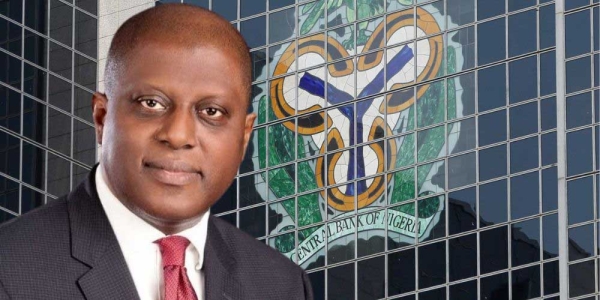Amid persistent high prices, the Governor of Central bank of Nigeria (CBN), Mr. Olayemi Cardoso assured yesterday that inflation will subside in the months ahead.
At a meeting with leaders of organised private sector (OPS), the CBN governor said there were positive developments in the fight against the economic menace.
He told the OPS leaders at the meeting held at the bank’s Lagos office on Wednesday, June 19 that there is a deceleration in month-on-month inflation rates.
The meeting was designed to discuss the state of the economy, monetary policy direction and fostering of collaboration.
It also focused on exploring how broad-based monetary policy communication and guidance can positively influence the global investment community’s perception of Nigeria and on determining the right bundle of monetary policies and interventions to increase the productive sector’s growth.
The apex bank governor expressed expectations for continued moderation in the coming quarters.
A key focus of the meeting was the CBN’s commitment to improved communication and transparency.
Cardoso emphasised the bank’s intention to utilise forward guidance, a strategy that has to do with communicating future monetary policy actions to enhance investor confidence – both domestic and international.
According to the CBN Governor, building trust through transparency is critical to attracting investment and fostering a healthy business environment.
Addressing the recent interest rate hikes implemented by the CBN, he provided a detailed explanation on the rationale behind the decisions and the expected timeline for their impact on the economy.
The CBN Governor assured the OPS that the measures were designed to achieve price stability, a core function of the central bank, while also supporting economic growth.
Cardoso acknowledged the challenges faced by the private sector in accessing foreign exchange (FX) and emphasised the bank’s ongoing efforts to improve FX supply while ensuring a fair and balanced approach that protects the interests of all stakeholders.
The meeting reiterated CBN’s commitment to collaborating with the private sector as discussions focused on establishing a framework for ongoing communication and engagement with OPS leadership.
This collaboration is designed to harmonise economic policy and ensure the CBN’s effective support for private sector growth, potentially in partnership with the Nigerian Economic Summit Group (NESG).
Mr. Cardoso noted the importance of private sector input in shaping economic policy, saying: “The private sector is a critical engine of our economy.”
The inclusion of private sector perspectives is seen as crucial for creating a more robust and investor-friendly financial environment.
President of the Manufacturers Association of Nigeria (MAN), Otunba Francis Meshioye, raised concerns regarding the operation of the CBN’s price verification system.
He, however, proposed a collaborative approach which was agreed upon, with the OPS providing specific details and suggestions for improvement.
Other private sector leaders also addressed the need for development finance support.
While acknowledging that such measures may not directly increase cash flow, the private sector leaders emphasised their value in enhancing the productive sector’s capacity to manage risks like exchange rate volatility.
The CBN’s role in facilitating trade finance and development finance through traditional institutions was also highlighted.
The apex bank presented a detailed explanation of the economy’s trajectory, the reasons behind the recent aggressive monetary policy rate hikes, and the expected transmission timeline into the economy.

